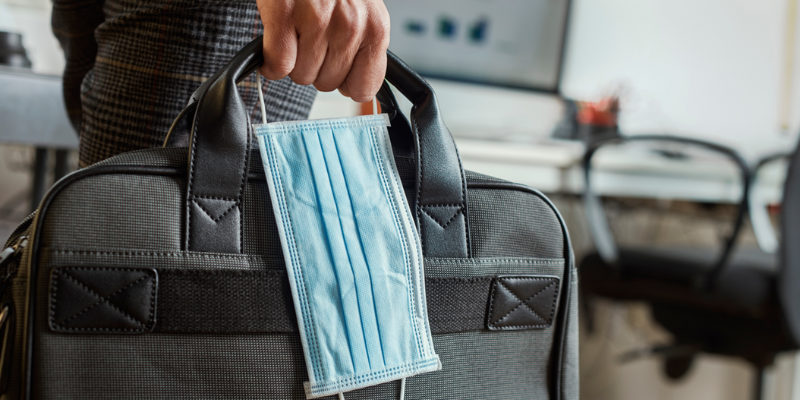In December 2019 (before my didlaw days), a horrendous flu circulated among my office of around 12 people. Someone would come in coughing, and the next day they would be bed-bound. Several people didn’t come back in for a week or more, although a few struggled into the office, tissues and lurgy in tow. (One partner was so sick his wife had to call in to tell us.) The trend repeated until at least 75% of the team went down – many of them over the Christmas period. I look back on that now, post-pandemic, and I can’t believe it was the same planet. The idea of a colleague coming in with even the slightest of sniffles makes me want to put on a hazmat suit.
When Do Covid Restrictions End?
Dealing with these situations will become a lot more fraught with the end of isolation and all other covid restrictions which took place on 24 February. During the pandemic, we have expected anyone with a cold to just stay home – maybe even if they were testing negative for covid. Now, there will be no legal sticks to make sure we are not sitting at our desks next to someone who has tested positive.
Given immunity levels, perhaps we can start thinking of covid as akin to getting a cold or flu bug – unpleasant maybe, but nothing to get too upset about. Can we accept a certain level of infection as the price of being around other humans, just living life, like we do with flu? Certainly, that remains to be seen, as social customs evolve in the new normal.
Of course, employers can set their own policies. Particularly in workplaces which are high-risk or close contact, it may be advisable to continue asking employees to test themselves regularly. This may come with additional financial burdens in the near future, as the government is ending free lateral flow tests from April. Managers may want to make it clear that anyone with potential covid symptoms shouldn’t be required to come in – although this will be easier where employees can continue to work from home.
Where things could get tricky are where employers’ policies prohibit employees from the workplace after testing positive, and they are unable to work from home – especially if they do not have symptoms and so would otherwise be capable of working. From 24 March employees with Covid-19 will no longer be able to claim statutory sick pay from day one, and in any event, for many this would still not be enough to make up for a day of lost wages. This pits employees’ financial interests against concerns for other potentially vulnerable employees – or customers – and the duty on employers to provide a safe work environment.
It’s also worth considering the implications for inequality with the end of isolation. Highly paid office workers can afford to shelter at home for indefinite periods of time while continuing to work. Not so for essential workers, many of whom can scarcely afford any deductions to their wages.
In other words: it’s a minefield. Without the government telling us what to do, we will just have to figure the end of isolation out one step at a time. Of course, we will be keeping you updated if and when it inevitably goes wrong – watch this space.
This blog was written by Kendal Youngblood, Solicitor at didlaw.
